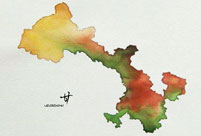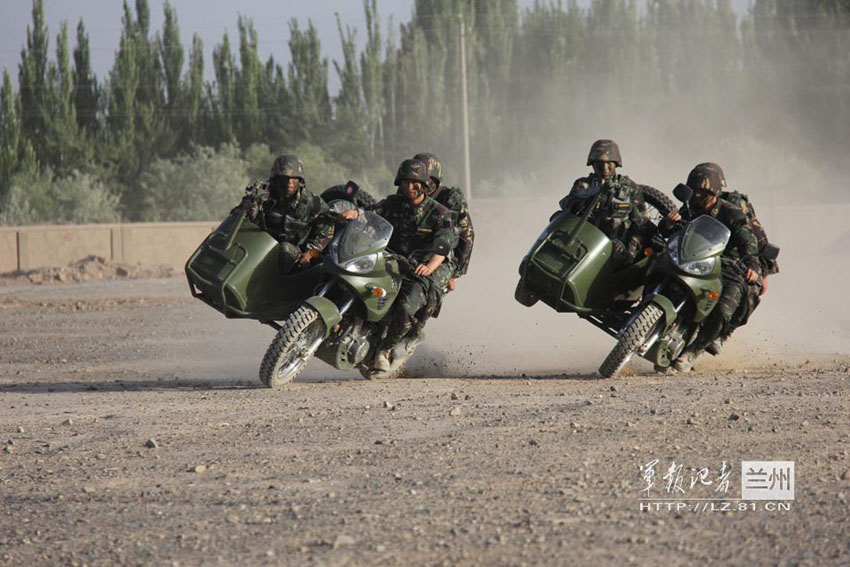 Avant-garde approach to graduation photos
Avant-garde approach to graduation photos
 Early PLA posters, signatures of an era
Early PLA posters, signatures of an era
 First Russian Street in Tianjin open to public
First Russian Street in Tianjin open to public
 Motorcycle stunt on the Bund
Motorcycle stunt on the Bund
 French Spiderman Alain Robert climbs up Galaxy Hotel in Macao
French Spiderman Alain Robert climbs up Galaxy Hotel in Macao
 Africans in Guangzhou
Africans in Guangzhou
 Pole dancer shows strength and beauty up in the air
Pole dancer shows strength and beauty up in the air
 College girls call for protection of ecological space on earth
College girls call for protection of ecological space on earth
 Top 10 celebrities driving auto brands
Top 10 celebrities driving auto brands
 10 low-carbon tips to save money
10 low-carbon tips to save money
U.S. President Barack Obama's latest remarks on the Diaoyu Islands, have prompted an angry response in China.
The United States and Japan issued a statement on Friday, a day after Obama and Japanese Prime Minister Shinzo Abe held talks in Tokyo, and put the disputed Diaoyu Islands under the U.S.-Japan Treaty of Mutual Cooperation and Security.
Ruan Zongze, vice president of the China Institute of International Studies, said the U.S. is trying to help Japan to play a bigger role in the region to hedge China's rising influence. China's action to protect its sovereignty over the islands, including Coast Guard patrols, has broken Japan's full control over the islands.
Tao Wenzhao, a researcher at the Institute of American Studies of the Chinese Academy of Social Sciences (CASS), said although some U.S. officials had made similar remarks before, but it is the first time the President has made such a comment.
Tao said Obama repeatedly made the remarks to reiterate the U.S. stance to its allies. "Though the U.S. is tied in the Middle East, the Ukraine issue, among others, Asia-Pacific remains its strategic pivot, and the U.S. commitment to its allies remains unchanged."
As China and Japan were normalizing relations in the 1970s, the two countries reached consensus on "leaving the issue of Diaoyu Dao (Islands) to be resolved later."
In 2012, Tokyo moved unilaterally to "purchase" and "nationalize" the Diaoyu Islands, seriously straining China-Japan relations.
The United States reaffirms that it "takes no position" on the ultimate sovereignty of the Diaoyu Islands. However, it recognizes Japan's rights of administration over the territory and the mutual security treaty between the United States and Japan applies to the islands.
"Despite the take-no-position remarks, it seems to me that it does take sides to contain China from becoming a maritime power, especially in the West Pacific Ocean," Tao said.
The U.S. also wants to comfort some Japanese right-wing forces who wonder if the United States will provide assistance to Japan at critical moments, Ruan said,
The U.S.-Japan pact is one of the alliances the U.S. has around the world, which is essential for the U.S. to maintain its supremacy, Ruan said.
The Global Politics and Security Report 2013, released by the CASS, points that the Japan-U.S. alliance is more important than ever and irreplaceable in the current U.S. strategy.
The U.S. needs Japan's close collaboration in politics, economy, military and diplomacy to continue hegemony in the Asia-Pacific region while Japan hopes to work with the U.S. to contain China and promote a regional order dominated by the two, according to the Report.
The U.S. balance strategy in Asia-Pacific region is "outdated" in an era of peace and development. It is making Asian policies with a backward mindset, Ruan said.
"While everyone is talking about common security, the U.S. is still obsessed with achieving security through emphasizing on threats," Ruan said.
"If the U.S. deliberately narrows its path in Asia, it is not only likely for Japan to take advantage of it, but also it becomes less sure for the U.S. to control Japan," Ruan said, adding that the U.S.-Japan alliance may end as a heavy burden for the U.S..
 The Western Qing Mausoleum
The Western Qing Mausoleum Overseas returnees strive for dreams in Beijing
Overseas returnees strive for dreams in Beijing Fried up: Chili pork bonanza in Central China
Fried up: Chili pork bonanza in Central China Hand-painted maps go viral online
Hand-painted maps go viral online 4th Beijing Int'l Film Festival ends
4th Beijing Int'l Film Festival ends Commando elite specializes in sign language
Commando elite specializes in sign language Man photoshops himself into girlfriend's childhood photos
Man photoshops himself into girlfriend's childhood photos Photo story: Stallholders at Beijing Zoo Wholesale Market
Photo story: Stallholders at Beijing Zoo Wholesale Market Artists on backstage
Artists on backstage 'African Street' in Guangzhou
'African Street' in Guangzhou Special operation members in comprehensive training
Special operation members in comprehensive training Cute Shaolin boy melts the hearts of millions
Cute Shaolin boy melts the hearts of millions Giant panda Sijia is back to happy life
Giant panda Sijia is back to happy life Richest Chinese of 2014: half from the mainland
Richest Chinese of 2014: half from the mainland Chengdu - laid-back lifestyle makes happiest city
Chengdu - laid-back lifestyle makes happiest cityDay|Week|Month